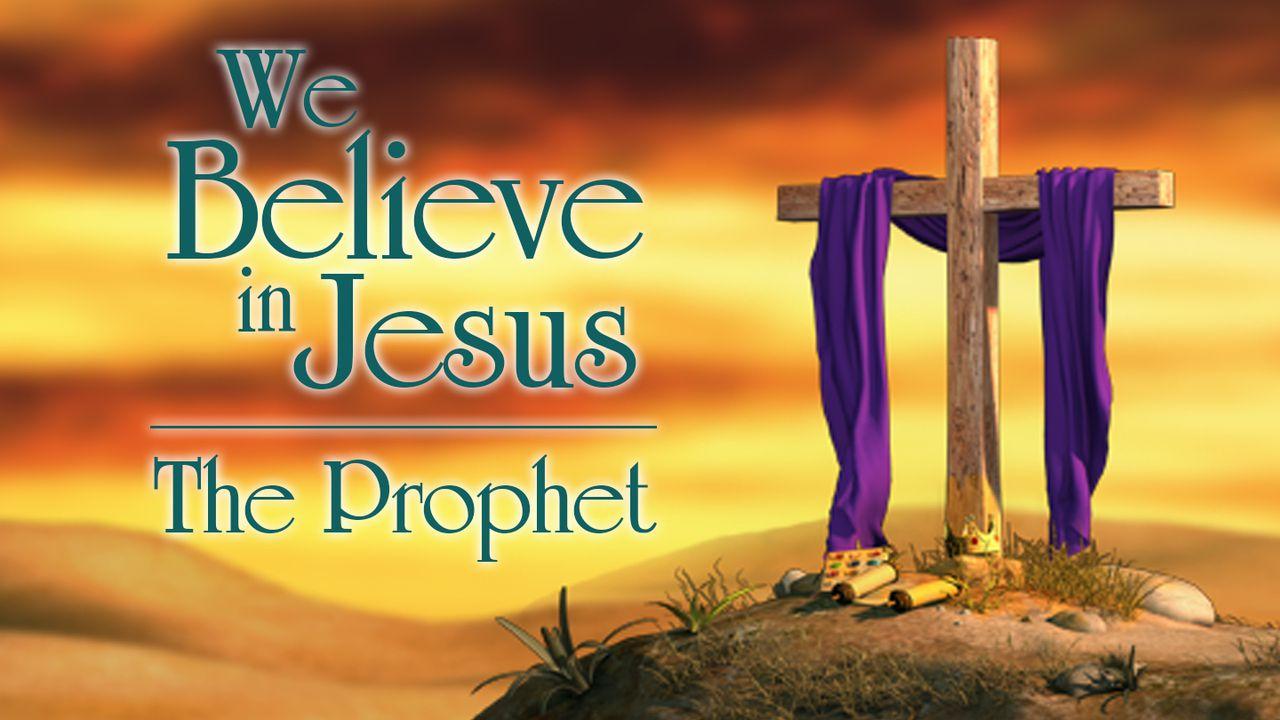We Believe In Jesus: The ProphetSample

Qualifications of OT Prophets: Deuteronomy 18:17-22
When most people hear the word “prophet,” they tend to think of someone who makes predictions about the future—and this is even true of most Christians. But while it’s true that biblical prophets did sometimes foretell the future, this was not the main focus of their ministry. Most fundamentally, God’s prophets were his ambassadors. Their job was to explain God’s covenants, and to encourage his people to be faithful to him. And this was also the heart of Jesus’ prophetic work.
In line with this understanding of what prophets did, we’ll define a prophet as: God’s covenant ambassador, who proclaims and applies God’s word, especially to warn of judgment against sin, and to encourage the kind of loyal service to God that leads to his blessings.
Whenever Christians think about Jesus as our prophet, it’s important to remember that he wasn’t the first prophet that ever served God and his covenant. Throughout biblical history, there were hundreds of prophets of the Lord. They weren’t equal to Jesus in power or authority, but their service to God foreshadowed all the ways Jesus fulfilled this kingdom office. So, if we want to understand what Jesus did as prophet, it helps to begin with the prophets that came before him.
Old Testament prophets were ambassadors or emissaries of God’s covenants. In his covenants, God revealed himself as the great Emperor of his people, and his prophets served as the emissaries or authorized messengers of his royal court in heaven. They brought God’s word to the people of Israel and to various other nations, and exhorted them to be faithful to God as their king.
Of course, many of the nations surrounding Israel also had prophets of their own that resembled God’s true prophets in superficial ways. But these false prophets used trickery, superstition, and demonic powers to represent their false gods.
In a world where there were many false prophets, it was very important for Israelites to be able to distinguish true prophets of God from false prophets. For this reason, the Old Testament laid out several qualifications for true prophets of God.
These requirements are mentioned in Deuteronomy 18:17-22. In this passage, we can see at least four qualifications for true prophets of God. As Moses taught here, true prophets were called by God. They were given God’s word to speak to the people. They demonstrated their loyalty to God by speaking in his name only in accordance with his commands. And their ministry was authenticated by the fulfillment of their message.
Click here to watch We Believe in Jesus: The Prophet, lesson three in the series We Believe in Jesus . Biblical Education, For the World, For Free. thirdmill.org .
Scripture
About this Plan

This reading plan investigates the doctrine of Christology, focusing on the person and work of Jesus Christ. Jesus is God in the flesh, the center of all history, and the only hope for the salvation of humanity and creation. This plan explores Jesus' fulfillment of the Old Testament office of prophet.
More
Related plans

Celebrate

Write Your Faith: 3 Days of Journaling

Forgive Them Too??

The Last Half Hour: When Waiting Becomes Glory

Healing the Wounds of Rejection

The Radiant Mom: 10 Days to a More Joyful, Christ-Centered Home

Prayers for a Mother's Day: Powerful Prayers for Busy Moms

Reading With the People of God #14 Proverbs

Rest in God’s Love: 3 Days of Contemplative Prayer
